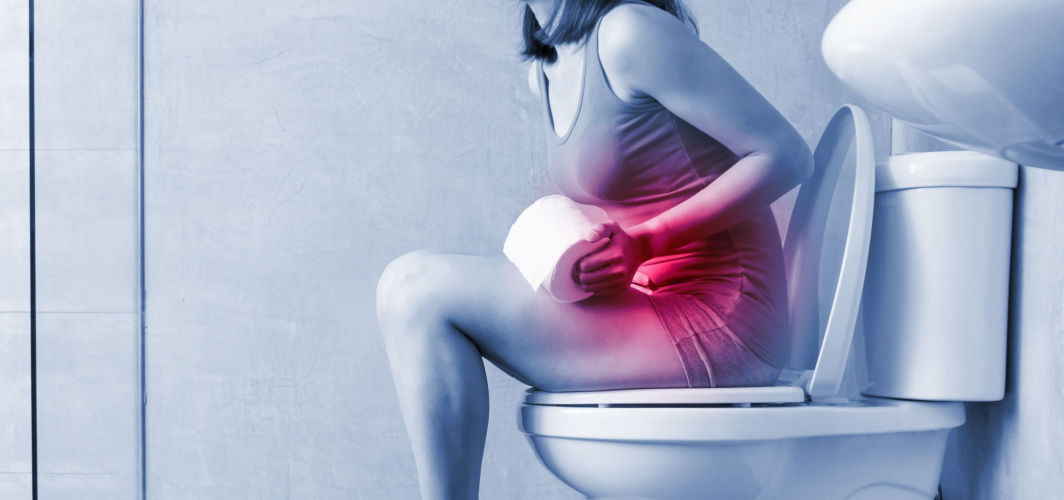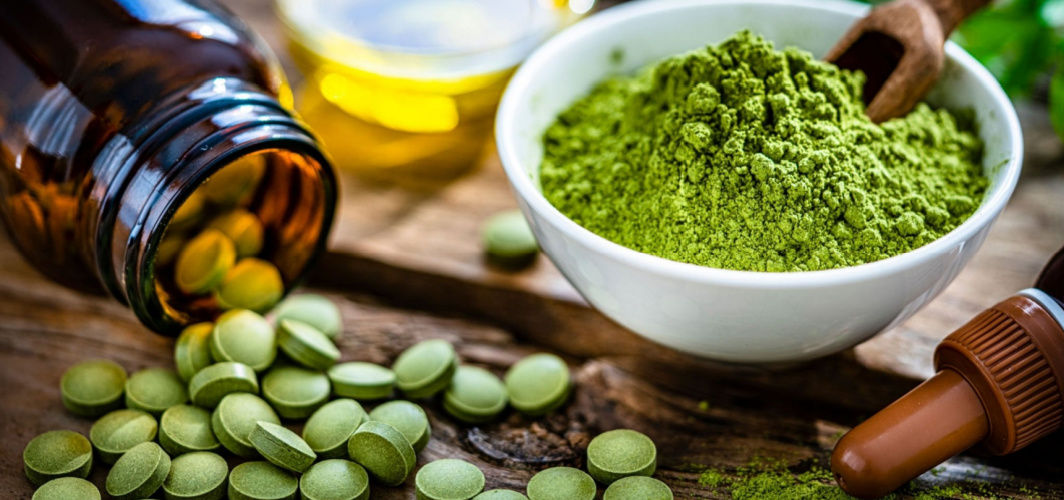Digestive Health
Crohn’s Disease: A Lifelong Form of Inflammatory Bowel Disease
4 min read
By Apollo 24/7, Published on - 24 August 2021, Updated on - 24 January 2023
Share this article
0
59 likes

A person experiencing abdominal pain, cramps, diarrhoea, weight loss, and rectal bleeding over prolonged periods could be affected by Crohn’s disease. This health condition belongs to a group of inflammatory diseases of the digestive tract known as inflammatory bowel disease (IBD). The inflammation of the digestive tract (particularly the small and large intestine) causes periods of active symptoms followed by periods of remission. The condition affects both men and women equally and can occur at any age but is most often experienced by people in their 20s or early 30s. While there is no cure for Crohn’s disease, controlling the symptoms can help individuals affected by it, to lead active lives.
Understanding more about Crohn’s disease
The main function of the intestines is to absorb excess water and salts once the food is digested. In Crohn’s disease, intestinal inflammation affects the primary functions of the intestines including water absorption resulting in diarrhoea.
Crohn’s disease can affect any part of the gastrointestinal tract or digestive tract, from the mouth to the anus. However, the disease most often affects the small and large intestines (last segment of small intestine and first segment of large intestine). The inflammation can extend to deeper layers of the intestine, affecting the entire thickness of the intestinal wall. Over time, Crohn’s disease can cause swelling in parts of the intestine, blocking the flow of contents in the digestive tract. Chronic inflammation can also result in open sores called ulcers anywhere in the digestive tract.
Types of Crohn’s disease: Crohn’s disease is classified into different types based on the segment of the gastrointestinal tract affected.
- Ileocolitis – Small intestine and part of the large intestine
- Ileitis – Ileum (Small intestine)
- Gastroduodenal – Stomach and duodenum (upper segment of the small intestine)
- Jejunoileitis – Jejunum (Upper half of small intestine).
Causes of Crohn’s disease
Researchers do not know the cause of Crohn’s disease. However, they believe that a combination of genetic factors and an abnormally functioning immune system may lead to the development of Crohn’s disease.
- Immune system – An autoimmune reaction where the immune system mistakenly attacks healthy cells in the digestive tract, may result in Crohn’s disease. The abnormal immune response to normal bacteria in the intestine may cause inflammation and damage to the intestine.
- Heredity – Crohn’s disease tends to run in families and hence, genes are believed to play an important role. At the same time, it was observed that many people with Crohn’s disease do not have a family history of the disease.
- Smoking – Smoking is known to double the risk of developing Crohn’s disease. Smoking is also known to augment disease activity.
Symptoms of Crohn’s disease
The main symptoms of Crohn’s disease include:
- Diarrhoea
- Abdominal pain and cramps
- Bloody stools
- Fatigue
- Weight loss
Other symptoms include fever, anaemia, joint pain or soreness, eye pain and redness, nausea, or loss of appetite.
Diagnosis of Crohn’s disease
The diagnosis of Crohn’s disease include:
- Review of symptoms and physical examination to check for bloating in the abdomen.
- Imaging tests such as X-rays, CT scans, or MRI (magnetic resonance imaging) to get detailed images of the small intestine or colon.
- Colonoscopy or flexible sigmoidoscopy where a thin, lighted tube called an endoscope is used to examine the inside of the colon.
- Upper gastrointestinal (GI) endoscopy to look inside the mouth, oesophagus, stomach, and small intestine.
- Biopsy wherein a sample of tissue is collected and tested to check for signs of inflammation.
- Stool analysis to check for blood and signs of infection in the stool sample.
Treatment of Crohn’s disease
There is no cure for Crohn’s disease. Treatment aims to reduce intestinal inflammation, ease symptoms, and prevent further disease progression and complications.
Medications
- Anti-inflammatory medications and steroids to control inflammation
- Immunosuppressant medications to suppress the overactive immune response
- Biologics, stronger medications to suppress the immune response
- Antibiotics in case of an infection
- Anti-diarrheal drugs and fluid replacements.
Bowel rest
Bowel rest involves a liquid diet that contains all the nutrients the body requires. Bowel rest may involve not eating and not even taking fluids for several days. This provides rest to the intestines and a chance to heal.
Surgery
Surgery may be recommended to treat complications and alleviate symptoms when other treatments are not effective. Surgery involves removing the damaged part of the intestine in the case of blockages or bleeding.
Lifestyle changes to manage Crohn’s disease
Lifestyle changes can help ease symptoms and reduce flare-ups. These include:
- Dietary changes
- Eating smaller meals frequently
- Eating a healthy diet that is low in fats
- Avoiding carbonated beverages
- Limiting dairy products
- Avoiding high-fiber foods
- Drinking plenty of liquids
- Quitting smoking
- Exercising regularly
- Managing stress.
Conclusion
Crohn’s disease flare-ups are unpredictable and can disrupt one’s quality of life. Hence, it is crucial to control disease activity and keep the disease in remission. A gastroenterologist can offer the right treatment along with healthy lifestyle changes to manage the symptoms of Crohn’s disease and prevent complications. Lifestyle changes mostly involve dietary changes accompanied by quitting smoking, regular exercising, and stress management.
For any questions or concerns regarding digestive health, you can consult a gastroenterologist.
Digestive Health
Leave Comment
Recommended for you

Digestive Health
बवासीर को घर पर ही प्राकृतिक तरीके से ठीक कैसे करें
बवासीर को का अर्थ होता है गुदाद्वार या फिर निचले मलाशय में नसों में सूजन और जलन का हो जाना। मलत्याग करते समय व्यक्ति के मलाशय से रक्तस्राव एवं दर्द होता है। जानिए इस बीमारी के बारे मे।

Digestive Health
Could Local Immune Reaction in the Gut Be a Cause of IBS Pain?
Recent research suggests that the pain caused by infection-induced IBS may be because of a local immune reaction to food in the intestine.

Digestive Health
Constipation Treatment: Best Herbal Supplements That Can Bring Relief
Constipation is not only painful but can also affect your daily life. Read to know easy remedies for constipation and natural pills for constipation treatment.
Subscribe
Sign up for our free Health Library Daily Newsletter
Get doctor-approved health tips, news, and more.
Visual Stories

Hidden Health Benefits in a Bowl of Salad
Tap to continue exploring
Recommended for you

Digestive Health
बवासीर को घर पर ही प्राकृतिक तरीके से ठीक कैसे करें
बवासीर को का अर्थ होता है गुदाद्वार या फिर निचले मलाशय में नसों में सूजन और जलन का हो जाना। मलत्याग करते समय व्यक्ति के मलाशय से रक्तस्राव एवं दर्द होता है। जानिए इस बीमारी के बारे मे।

Digestive Health
Could Local Immune Reaction in the Gut Be a Cause of IBS Pain?
Recent research suggests that the pain caused by infection-induced IBS may be because of a local immune reaction to food in the intestine.

Digestive Health
Constipation Treatment: Best Herbal Supplements That Can Bring Relief
Constipation is not only painful but can also affect your daily life. Read to know easy remedies for constipation and natural pills for constipation treatment.